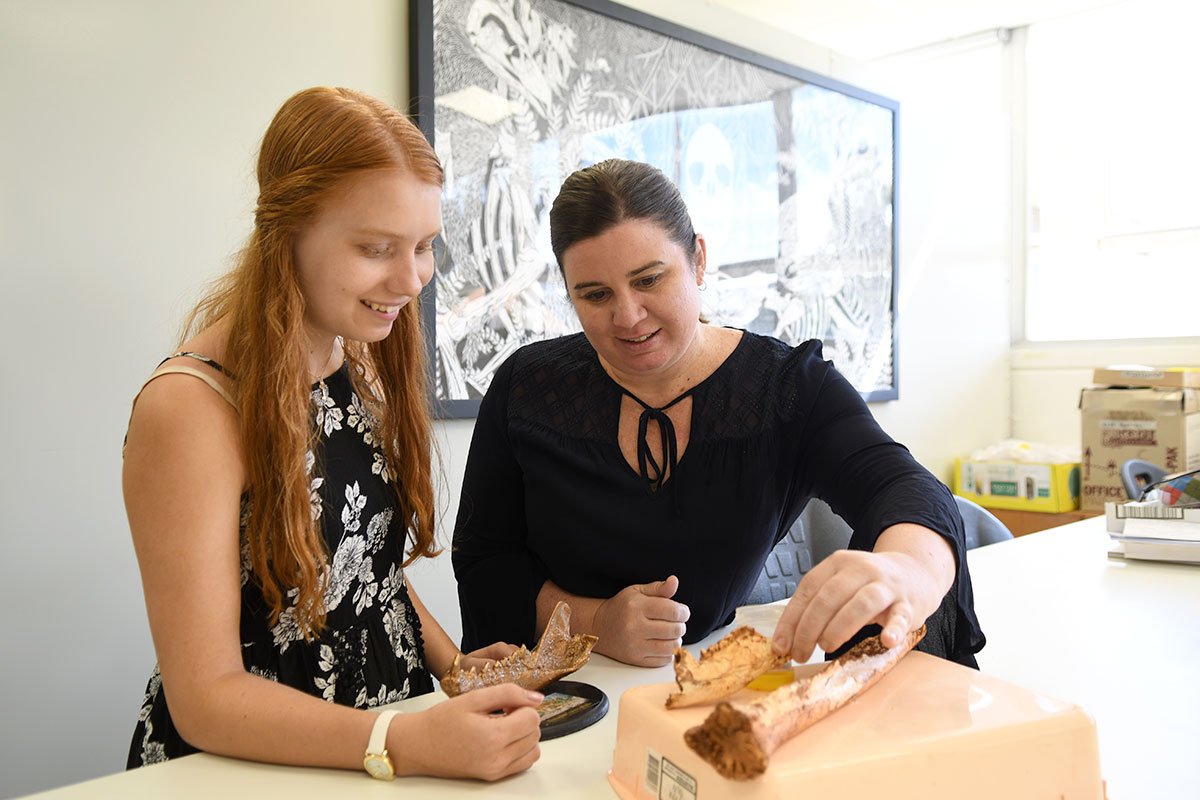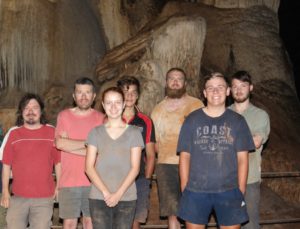
Unearthing giant marsupial bones has given country girl Teagan Cross a chance to move back in time and have an adventure of a lifetime.
After winning the James Moore Memorial Scholarship, the 18-year-old from rural South Australia enrolled in palaeontology at Flinders University and joined the first 2017 ARC field trip and site excavation at the Wellington Caves in central west NSW.

The scholarship fund was established in 2015 to provide funding for rural high school students to participate in an expedition with Flinders palaeontologists and help curate fossils collected during field work.
“I’ve loved dinosaurs since I was a little kid. But when I won the scholarship, and went underground, I realised my major in vertebrate palaeontology was the right choice,” says Ms Cross, who hails from a mixed farm at Moorlands near Coomandook in the Mallee region.
She follows in the footsteps of the former Flinders student James Moore, who took his first Flinders palaeontology field trips to the Naracoorte Caves in 2007 to sort bones and assist in digs – including Margaret River, WA in 2008 – while still at high school in Whyalla.
James was hooked by the mystery and excitement of fossil hunting and was a long-time student and technical officer in the Flinders Palaeontology Laboratory until his life was cut short in a fatal car crash on the Eyre Peninsula in December 2014.
“The family is pleased to give other young rural South Australians the chance to pursue their dreams,” says his sister Dr Lesley Moore, who encourages other donations to the memorial fund (see weblink below).
Two other country high school students, Lachlan Clasohm from Maitland and Stephen Anderson from Port Augusta also had the opportunity to join Teagan and the Flinders team at the Wellington Caves dig earlier this year.
They were among the field trip volunteers to work on the three-year Australian Research Council (ARC) Discovery grant project looking into how vertebrate fauna of Eastern Australia changed over the past 4 million years in response to environmental change.
Teagan is back at uni studying first year Bachelor of Science subject and is one of the first students enrolled in the new Vertebrate Palaeontology major.
“Many people would eventually go a bit crazy being down in the pit, three metres underground in a hole in the cave, but that was what made it interesting,” Teagan says. “It was a place of discovery and fun.”
“I will never forget the moment when that spade first hit bone. Within minutes I was holding two tail bones from an extinct giant kangaroo. That feeling was incredible, and almost indescribable.
“It suddenly occurs to you that in your hand are the remains of an amazing creature that lived hundreds or thousands of years ago, and that you are the first person to see it and experience it.”
Flinders University Paleaontology Laboratory director Professor Gavin Prideaux describes the Wellington Caves near Dubbo as ‘hallowed turf’ of Australian palaeontology, because the first megafauna described in Australia were found there in 1830.
“The Flinders team, led by PhD student Diana Fusco, is currently processing bones sieved from 25 tonnes of clay from the dig earlier this year (23 January to 23 February) and we expect some of our first major discoveries to be announced within 12 months,” Professor Prideaux says.
The James Moore Memorial Fund was established in 2015 to honour the memory of former Flinders University palaeontology student, James Moore. Originally from Whyalla, James devoted his university study to learning about the remains of prehistoric animals, including ancient megafauna of Australia, at the Flinders Palaeontology Laboratory.

